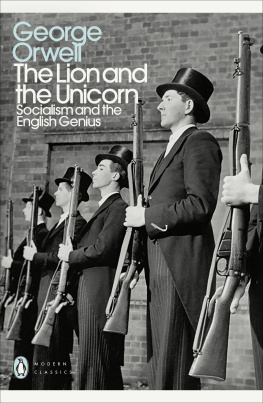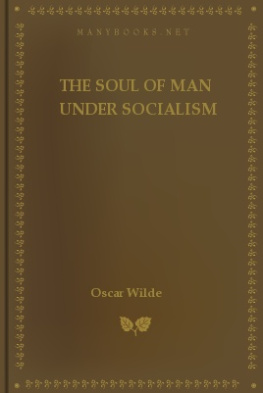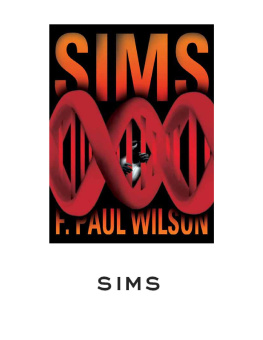By George R. Sims
Read Before The Ruskin Club Of Oakland California,
Edward F. Adams, Paul Elder and Company Publishers, San Francisco
1905
WITH THE COMPLIMENTS OF THE AUTHOR TO
THE RUSKIN CLUB OF OAKLAND
WHOSE MEMBERS LISTENED SO PATIENTLY TO THE READING OF THIS PAPER AND DANCED ON IT SO BLITHELY THEREAFTER, AS AN INTIMATION OF HIS FERVENT BELIEF THAT NO MORE CHARMING CONVOCATION OF SOCIALISTS, OR ONE MORE HOPELESSLY ENTHRALLED BY THEIR DELUSIONS, EXISTS ON EARTH.
TO THE RUSKIN CLUB:
When your Mr. Bamford wrote me that the Ruskin Club was out hunting trouble, and that if I would come over here the bad men of the club would "do me up," I confess my first impulse was to excuse myself from the proffered hospitality. In the first place, as I have never posed as a social champion I had no reputation at stake and I was horribly afraid. Secondly, while my reading of Socialist and Anti-Socialist literature is the reverse of extensive, I am very sure that nothing can be said for or against Socialism which has not already been said many times, and so well said that a fair collection of Anti-Socialist literature would make a punching-bag solid enough to absorb the force of the most energetic of pugilists. Finally, the inutility of such a sally presented itself forcibly, since there is, so far as I know, no record of the reformation of a Socialist after the habit is once firmly established. But while at first these considerations were all against my putting on my armor, in the end the instinct of eating and fighting, which is as forceful in the modern savage, under the veneer of civilization, as in our unpolished progenitors, overcame all considerations of prudence, and here I am to do battle according to my ability. I promise to strike no foul blows and not to dodge the most portentous of whacks, but to ride straight at you and hit as hard as I can.
CRITIQUE OF SOCIALISM
W HILE it is doubtless true that no one can live in the world without in some degree modifying his environment, it is also true that the influence of a single person is seldom appreciable or his opinion upon social questions of sufficient importance to excite curiosity, but I confess that when I listen to an address intended to be thoughtful, I enjoy it more or at any rate endure it better, if I have some knowledge of the mental attitude of the speaker toward his general subject. Thinking that possibly those who hear me this evening may have the same feeling, I begin by saying that I earnestly favor a just distribution of comfort. I suppose that if I should analyze the mental processes leading to that wish, I should find toward the bottom a conviction that if each had his due I should be better off. The objection to the Socialistic program is that it would prevent a just distribution of comfort.
Some years ago in a book of which I was guilty, I wrote the following: "There is implied in all Socialistic writing the doctrine that organized man can override, and as applied to himself, repeal the fundamental law of Nature, that no species can endure except by the production of more individuals than can be supported, of whom the weakest must die, with the corollary of misery before death. Competitive Society tends to the death of the weakest, Socialistic Society would tend to the preservation of the weak. There can be no question of the grandeur of this conception. To no man is given nobler aspirations than to him who conceives of a just distribution of comfort in an existence not idle, but without struggle. It would be a Nirvana glorious only in the absence of sorrow, but still perhaps a happy ending for our race. It may, after all, be our destiny. Nor can any right-minded man forbear his tribute to the good which Socialistic agitation has done. No man can tell how much misery it has prevented, or how much it will prevent. So, also, while we may regret the emotionalism which renders even so keen an intellect as that of Karl Marx an unsafe guide, we must, when we read his description of conditions for which he sought remedy, confess that he had been less a man had he been less emotional. The man whom daily contact with remediable misery will not render incompetent to always write logically, I would not wish to know. But it is the mission of such men to arouse action and not to finally determine its scope. The advocate may not be the judge. My animus is that I heartily desire most if not all the ends proposed by abstract Socialism, which I understand to be a perfectly just distribution of comfort. If, therefore, I am a critic of Socialism, I am a friendly critic, my objections to its program resting mainly on a conviction that it would not remove, but would intensify, the evils which it is intended to mitigate." That is quite sufficient in regard to the personal equation.
There appear to be, unfortunately, as many sects of Socialists as of Christians, and if "Capital" were a more clearly written book I should be of the opinion that it would be as much better for Socialists if all other books on Socialism were destroyed as it would be for Christians and Jews if all books on Theology were destroyed, except the Bible. By Socialism I mean what some Socialist writers call "Scientific Socialism."
"Marxism," it might be called. "Humanism," I think Marx would have preferred to call it, and I believe did call it, for he dealt with abstract doctrine applicable to men and not to nations, and his propaganda was the "International." Incidentally, as we pass on, we may notice in this connection the dilemma of American Socialists which they do not seem to realize. State Socialism has no logical place in a Socialistic program, for it merely substitutes the more deadly competition of nations for that of the individual, or even "trust" competition now existing, while Humanism, or Marxism, tends to a uniform condition of humanity which the American proletariat would fight tooth and nail because they would rightly believe that for them it would at present be a leveling down instead of leveling up.
Karl Marx was, of course, not the inventor of Socialism, nor was he, so far as I know, the originator of any of its fundamental doctrines,the doctrine, for example, that all value is derived from labor was part of mediaeval clericism,but he first reduced it to coherent form and published it as a complete and definite system, and upon the issues, substantially as he formulated and left them, must Socialism stand or fall.
I must assume the members of the Ruskin Club to be familiar with the Marxian fundamental propositions, which I do not state because I shall confine my attack to the three derived propositions about which discussion mainly centers. We certainly do not want an exercise in serious dialectics after dinner, but I will say in passing that I do not think that any of his fundamental propositions are true, or that his theory of value has a single sound leg to stand on, and as for what he calls "surplus value," I doubt whether there be such a thing. At any rate he has not proved it, nor can it be proved, without taking into consideration the enormous number of industrial failures, as well as the more limited number of industrial successesand there are no data for that purpose. I may also mention as what seems to me a fatal flaw in Socialistic philosophy, its concentration upon the conditions of industrial society, without adequate conception of a provision for the requirements of agriculture. Industrialism and commercialism are doubtless conveniences essential to our present civilization; but if every factory and all commerce were blotted from the earth the world would go right along, and when the necessary millions had perished in the adjustment, those remaining would be as happy as ever. Mankind adjusts itself to new environments very readily. We here in cities talking wisely on these things are wholly unnecessary. The farmer is essential, because without him we should starve. Nobody else is essential. We must not get the big-head. Economical farming on Socialistic methods is impossible, and any successful system of Social betterment must be based on the requirements of economical farming. Finally, to conclude this preliminary reconnaissance, the attitude of Socialism to religion is wholly unjustifiable. I am profoundly convinced that the groveling heathen, who in sincerity bows down to a "bloomin' idol made of mud," as Kipling puts it, has in him the propagation of a nobler and happier posterity than the most cultured cosmopolitan who is destitute of reverence. The church and the synagogue are the only existing institutions of modern society which are engaged in the work of upbuilding and strengthening that rugged personal character which is the only sure foundation of any worthy civilization.










